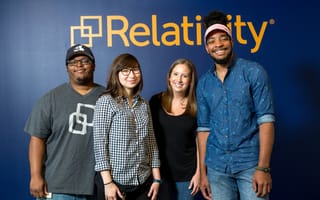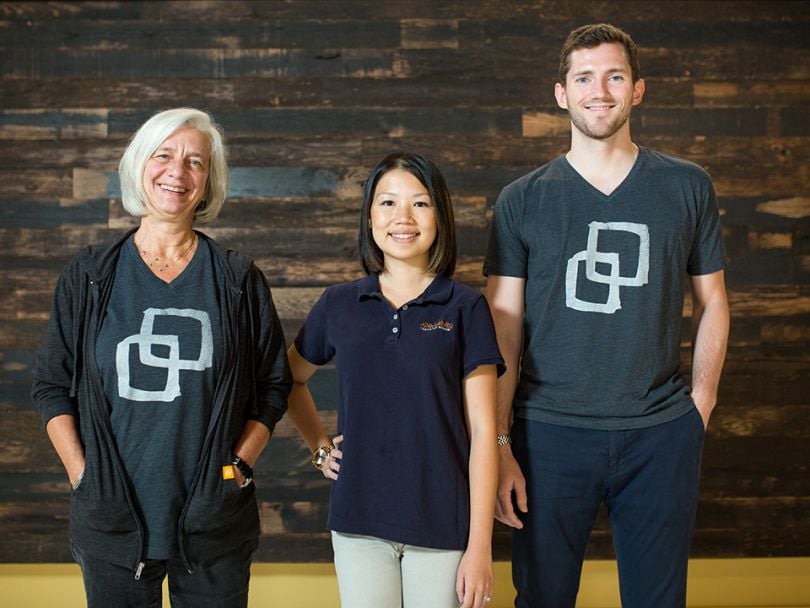
Relativity ended up in the legal tech industry by happenstance.
It began as a consulting company in 2001. But when a client asked the startup to build electronic document review software, the team recognized its potential to turn it into something big. Relativity started selling that product to law firms, drawing enough customers to get out of consulting altogether by 2007.
Today, Relativity’s on-premise and cloud-based platform is used in more than 195 of the country’s 200 largest law firms and more than 70 companies in the Fortune 100. It’s also supported by one of Chicago’s biggest tech teams.
We asked them what that growth has been like.
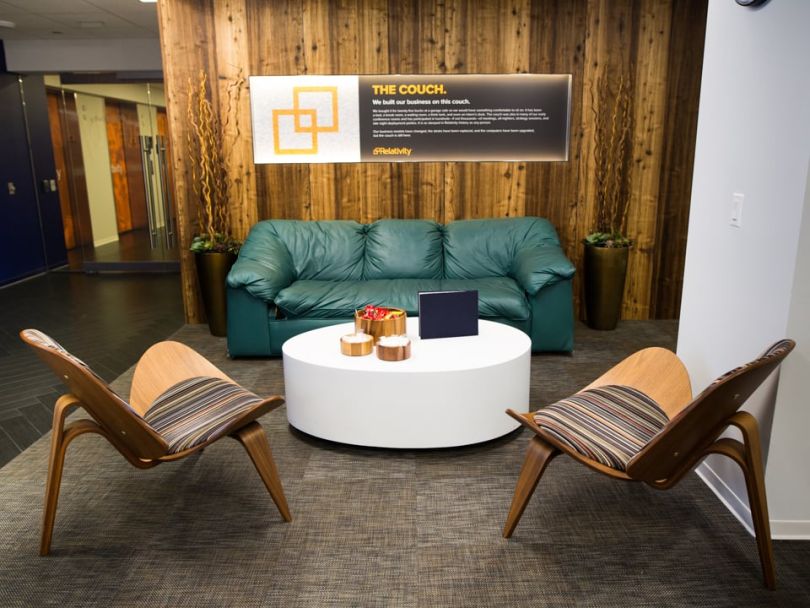
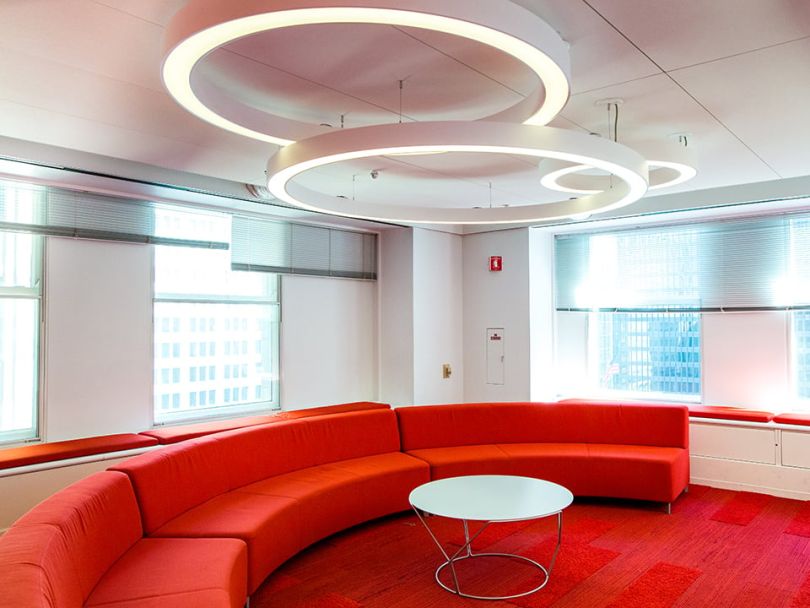
RELATIVITY AT A GLANCE
WHAT THEY DO: Make software to gather, organize and analyze data during litigation.
EMPLOYEES: 660 locally.
THE STACK: C#, C++, Java, Scala, jQuery, Elasticsearch, SQL, Azure
$3K: An annual learning stipend that is available to full-time employees.
THE GREEN COUCH: Purchased for $25 in 2001, this infamous piece of furniture still adorns the lobby in Relativity’s HQ. (It’s been cleaned.)
IN THE BREAK ROOM: People play video games like NBA Jam and Killer Queen, nosh on snacks and compete in Magic: The Gathering, with regular tournaments.
ZEN MEDITATION ROOM: They have that, too.
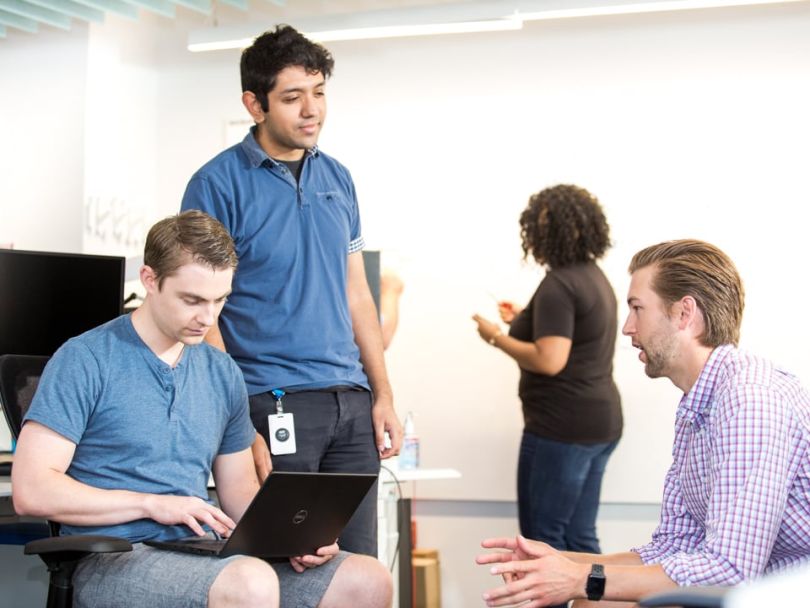
What does Relativity do?
Andrew Deitch, manager, strategic partnerships: We help lawyers find the most important information in really large data sets. To do that, we gather data from laptops, phones, cloud storage services, servers, networks, chat services and even physical paper. Then we put it in one place and make it searchable.
That’s challenging, because people don’t usually email each other saying: “Hey, let’s commit fraud.” So we use analytics and machine learning to help surface important data and get rid of the junk, going from millions of documents to 100 documents that the user really cares about.
Workplace communication is evolving, with mediums like Slack, text message and cloud-based document sharing gaining in popularity. What does that mean for your work?
Deitch: We used to live in a world that was more than 90 percent email. Now we have to find ways to visualize data that’s more message-based, less discrete and part of a constant stream of information.
On our engineering floor, people are constantly thinking about a world where there are no “to” or “from” fields, and where people come and go from conversations. Companies today use Bloomberg Chat and have Slack channels with hundreds of people. There will be legal cases where it’s important to know who was there and when, and what they might have seen.

Relativity has also evolved. What’s changed most since you first started here?
Cindy Quendangen, engineering manager: When I started four years ago, we did not have as wide of a variety of technology. It was a lot of C# and .NET, and we were not in the cloud yet. As the company has grown, so has our stack. Today, we also use Java, C++, Scala, jQuery, Elasticsearch, SQL and Azure.
We’ve learned so much from new engineers bringing in their expertise. The growth has also helped support my career. My manager suggested that I try the management route, and I love it.
I’ve seen a lot of other people move around, too, and the culture really supports that. Instead of holding people back, managers constantly ask people what they’re interested in. I think that’s part of why Relativity can grow so fast while maintaining a healthy culture. People don’t feel lost in the mix, even though the company is getting big.
Deitch: We all end up doing bigger jobs than we were doing last month. We’re always asking more of each other and learning on the fly. It’s kind of scary and it takes a certain kind of person, but it’s baked into everything we do.
One of Relativity’s core values is accountability, which can at times be uncomfortable. How do you foster an accountability-driven culture while keeping the feedback constructive?
Dorie Ellzey Blesoff, chief people officer: Our culture encourages people to ask for and provide feedback if they see things that could be better. That’s done formally through engagement surveys, but also informally through conversations.
We also have a specific way of providing feedback, called “plus/delta,” which is a way to call out both something positive and an improvement opportunity. We’re not perfect at it, but we really want people to own their self-improvement.
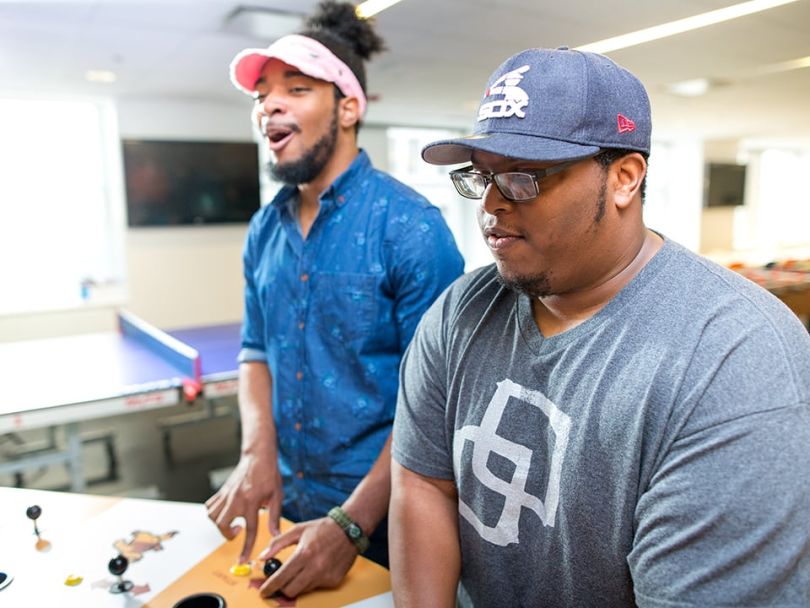
More broadly, how do people at Relativity work together?
Blesoff: People who come here say they’ve never been in an environment where so many people are willing to help them. At some companies, people compete for information because it makes them special. But having the right information is what makes us all succeed, so helping other people ultimately benefits everyone.
Quendangen: Your performance is reviewed on this as well. If you're not helping your co-workers, you're not exceeding expectations. People know we really take that seriously.
Deitch: We all work toward the common goal of helping our users get home at night instead of working. Customer success is a buzzword today, but it has been our focus since the beginning. It’s never about my success or what I can achieve. It’s not political, and it’s not dog-eat-dog. At the end of the day, we’re happy when we’ve made our users’ lives better.
What is your favorite thing about working for Relativity?
Deitch: We are a Chicago tech company; our culture show those Chicago roots. There are no egos or flash, and we don’t talk ourselves up. We try to be humble and focus on the success of our users. In meeting people from other tech companies across the country, I’ve learned to appreciate that culture more and more.
Quendangen: When I go home, I'm always excited to share my day with my family. It could be a cool technical challenge, something the team is trying out or something new I learned. We also host regular conversations, almost like TED talks, where CEOs and industry leaders come in and share. It’s just always inspiring to come in here and I always feel like I’m evolving.
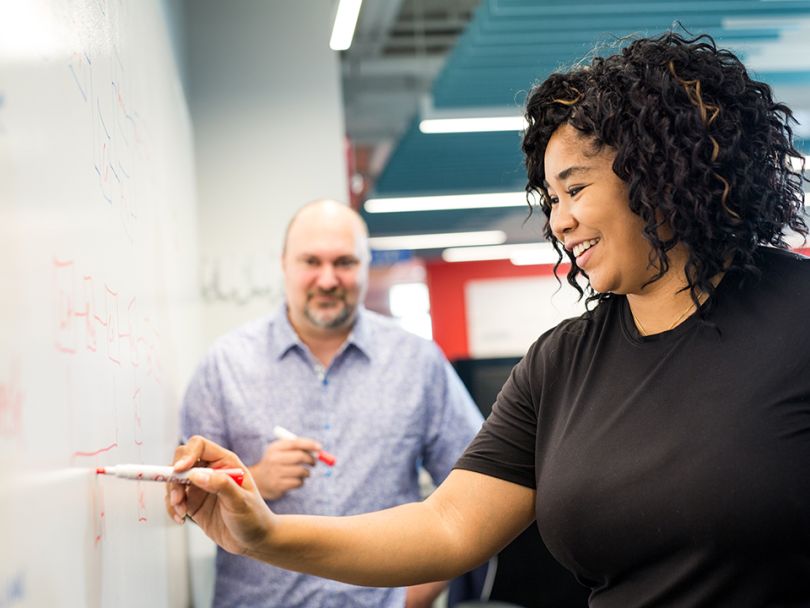
Speaking of learning, employees at Relativity all get a $3,000 yearly stipend for development. What do you spend yours on?
Deitch: You can be creative with how you use your stipend, so long as it’s tied to your development goals. I’ve wanted to get better at public speaking, and this year I’m speaking at Relativity Fest. To make sure that goes well, I’ve signed up for a storytelling and speaking class at The Second City.
Quendangen: A lot of our engineers go to conferences. But the biggest thing for a lot of our engineers is actually the annual hackathon, which doesn’t involve the stipend. People take two days off work to form teams and work on a pet project. A lot of these projects actually make it into Relativity.
It’s all about coming up with ideas that our customers can use. Thinking about customer needs in that way also helps foster ownership over the product. And it’s a good way to make a case for a new feature you’ve been itching to code, but that hasn’t made it onto the roadmap. People stay up all night working on their projects, and the company orders food.
Blesoff: There’s a lot of informal learning going on. We have an internal learning system where people can access information on their own time, and there are initiatives like book clubs. We also have a women’s network, focusing on how to gain advancement and how to continue the dialogue around inclusion. Learning is the fabric of our culture.
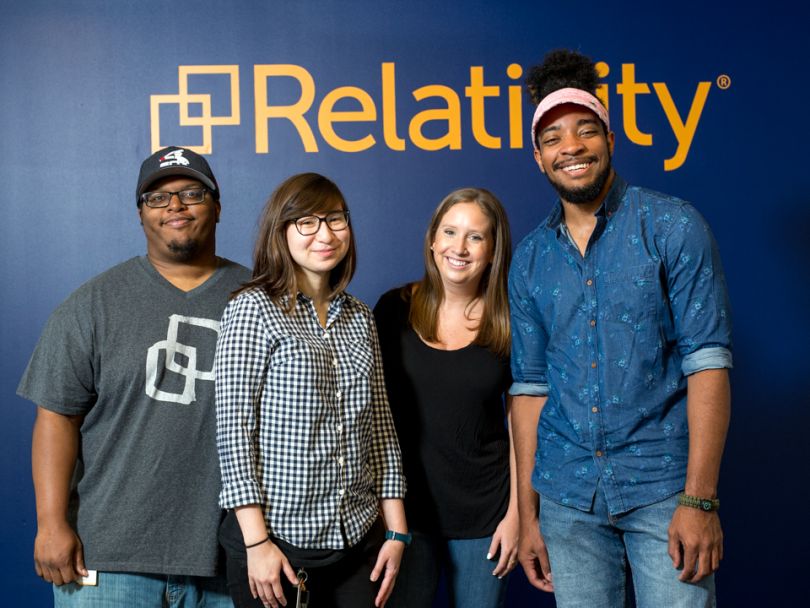
What do you look for in the people you hire?
Deitch: Curiosity and problem-solving skills. People who have that spark and talent, and who want to work on interesting problems will definitely fit in. And we’re looking for people who can complement our culture by bringing new perspectives.
Blesoff: We look for people with a wide range of experience and skill sets, and whose lives and previous work demonstrate that they align with our values. We like to ask questions about things they’ve faced in the past. “Tell me about a time when someone gave you feedback that was hard to hear. What did you do?” That’s better than asking people if they’re open to feedback.
The interview has been edited for length and clarity.

